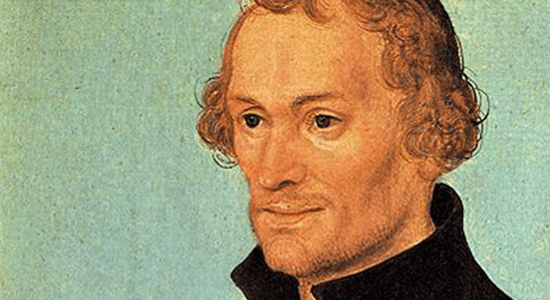
Who was “Master Philip” and what did he contribute to the Reformation? In this episode of 5 Minutes in Church History, Dr. Stephen Nichols tells us about the life of Philip Melanchthon.
Philip Melanchthon is, after Martin Luther, likely the most prominent resident of Wittenberg, Germany. “Master Philip,” as Luther called him, was born on February 15, 1497. He came of age educationally just after Martin Luther did, but in many ways, Melanchthon’s education was very different from Luther’s. Luther was raised in medieval methodology, whereas Melanchthon’s early education was steeped in the new humanism. He received his bachelor’s degree from the University of Heidelberg and his M.A. from the University of Tübingen.
In 1518, one year after Luther posted the Ninety-Five Theses, Luther traveled to Heidelberg for disputation with a gathering of Augustinian monks. That same year, Melanchthon accepted an invitation to become the University of Wittenberg’s first professor of Greek. This was a crucial position. In 1516, Erasmus published his Greek text of the New Testament. Luther later used this Greek text in translating the Bible into German. Studying God’s Word in its original language was, in many ways, the bedrock of the Reformation. So, Melanchthon’s task was to teach Greek to the students who came from all over Europe to study at Wittenberg under Luther. After these students learned to read the Greek New Testament, they were sent out as pastors and missionaries and to carry the gospel around the world. This was an important decision that Melanchthon made when he went to Wittenberg.
At the university, Melanchthon became enamored with Luther and became an advocate of Lutheran doctrines. In 1519, Melanchthon even helped Luther in his debate with Johann Eck over the issue of sola Scriptura and the authority of Scripture. That debate was originally between Melanchthon and Eck and it went on for a few days. It was making some headway when, all of a sudden, Luther stepped in. When that happened, you could clearly see the difference. A few years later, Luther wrote: “Master Philip, he cuts with the precision of a knife. I simply swing the ax.” Melanchthon, the careful scholar, applies the scalpel with precision and care to make his point. But Luther comes in with the big ax and he is flailing and chopping away.
Luther and Melanchthon were very different, but they were brought together at Wittenberg during the crucial years of the Reformation. They helped each other, and God used both to bring about the reformation of the church.
Stay connected with 5 Minutes in Church History by getting the weekly podcast on iTunes, SoundCloud, or via RSS. You can also subscribe to the blog via RSS and follow us on Twitter and Facebook.
(This podcast is by Ligonier Ministries. Discovered by Christian Podcast Central and our community — copyright is owned by the publisher, not Christian Podcast Central, and audio is streamed directly from their servers.)